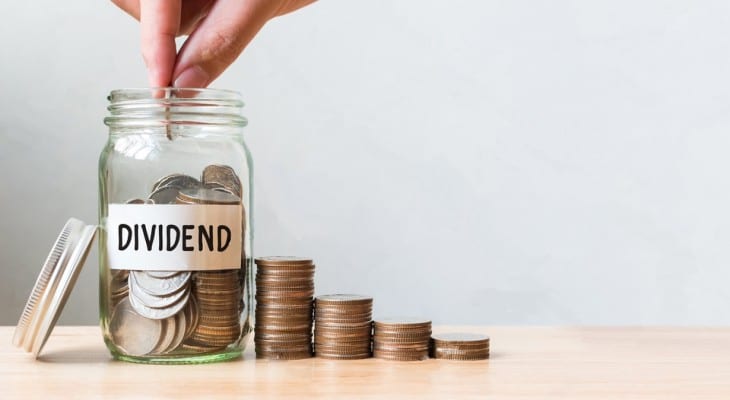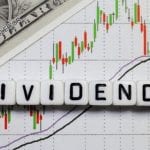2 Dividend-Paying Stocks to Buy Amid COVID-19 Recovery
By: Paul Dykewicz,

Two dividend-paying stocks to buy amid the COVID-19 recovery feature an investment management company and one of the world’s largest mining organizations that both offer rising payouts.
The first of two dividend-paying stocks to buy is San Mateo, California-based investment firm Franklin Resources, Inc. (NYSE:BEN), commonly known as Franklin Templeton, offering a 6.01% dividend yield and ranking among the elite Dividend Aristocrats that have boosted their payouts for at least 25 straight years. The second of two dividend-paying stocks to buy is Greenwood Village, Colorado-based Newmont Corporation (NYSE:NEM), one of the world’s largest gold company and a producer of copper, silver, zinc and lead.
Global investment management company Franklin Resources is among the businesses that have managed to grow recently while recovering from the COVID-19 crisis by increasing its assets under management 3.3% to $599.4 billion at the end of April, compared to $580.3 billion one month earlier on March 31. However, prior to that one-month rise in assets under management, they fell 16.8% during the 12-month span from April 30 last year, when its assets under management totaled $720.5 billion, to the same date this year.
Financial Performance of Franklin Resources as One of 2 Dividend-Paying Stocks to Buy
Franklin Resources reported a 7% drop in its revenues for the quarter ended March 31, 2020, compared to the same quarter a year ago. Its operating income declined by 6% and its net income slid by 78% due to the impact of writing down the value of the company’s investment portfolio amid a fall in assets under management and the value of its investment portfolio.
The company has found compelling investment opportunities amid sharp “dislocations across sectors,” said Jenny Johnson, president and CEO of Franklin Resources. During the recent market volatility, Johnson added that the company produced strong results in areas such as U.S. equity, municipal bonds, global macro, and global equity.
“Our acquisition of Legg Mason remains on track to close in the third quarter of the calendar year, and integration plans are well underway,” Johnson said. “We continue to see the long-term value of these combined franchises and that our strategy to diversify and create new opportunities is the right one.”
2 Dividend-Paying Stocks to Buy Include a Company in Transition
The combined company will offer a broadened range of investment strategies, expand its geographic presence, diversify its client base and improve its performance in market cycles. It also is premised partly on providing opportunities to invest in sales and client service models.
Franklin Resources is focused on its integration planning to meet its goals, Johnson said.
First of 2 Dividend-Paying Stocks to Buy Has Boosted Payouts 32 Straight Years
With 32 consecutive annual dividend increases to its regular dividend, Franklin Resources has been a Dividend Aristocrat for almost a decade. It also has paid occasional special dividends.
Current Dividend Yield and Dividend Growth Rate
The company’s current quarterly dividend of $0.27 converts to a $1.08 annual distribution to offer a 6.0% forward dividend yield. That payment marks a 3.85% increase in the annual dividend from 2019 to 2020.
Recent Stock Price Performance
Franklin’s stock price has fallen 43.65% during the past 12 months and 30.1% so far this year. There appear to be two principal reasons for the decline. First, the stock slid from the $35 range in July 2019 to the $25 range by January 2020 amid weaker-than-expected operating performance. The second reason stemmed from the COVID-19-induced stock market crash in March.
Other Major Events Include Proposed Purchase of Legg Mason
Franklin Resources announced the proposed acquisition of Baltimore-based Legg Mason on Feb. 18 for $50 per share, or about $4.5 billion. At the time, Franklin Resources’ market capitalization was about $12 billion, so its planned Legg Mason purchase would be a highly significant acquisition. Since that time, Franklin’s stock price has fallen from $25 to its close of $17.89 on May 22, with a low of $14.91.
DividendInvestor.com rates Franklin Resources a BUY for the following reasons:
- Although Franklin Resources has clearly suffered financial loss as a result of COVID-19, its recent 28% stock price decline from $25 to $18 seems overdone. The company’s business is fundamentally sound, is 100% open for business, its management services are essential and the company appears destined to bounce back with the market;
- Its 32-year history of dividend growth and a compelling 6.0% dividend yield add to the appeal. Franklin’s dividend and dividend growth looks safe and therefore should serve as a floor on the stock price.
Key Risks for the Company Include:
-Its proposed acquisition of Legg Mason remains subject to transaction-related and other uncertainties.
-Business operations are vulnerable to adverse effects from the outbreak and spread of COVID-19 and other contagious diseases, with those ill effects continuing.
-Failure or security breach of its information and cyber security infrastructure, software applications, technology or other systems may disrupt its business and operations.
-Third-party partners may be hurt by a cyber or security attack.
Investors who are worried about financial services companies right now should know that Franklin Resources does not operate banks that may face loan losses from struggling borrowers. Five Star Trader, an advisory service led by Mark Skousen, PhD, notched a 4.7% profit in less than two months by recommending a different global investment management company, T. Rowe Price (Nasdaq: TROW), also of Baltimore, in March before the market crash reversed.

Mark Skousen, a descendant of Benjamin Franklin, meets with Paul Dykewicz in Philadelphia.
Skousen, who also writes a monthly investment newsletter called Forecasts & Strategies, has profited by investing in gold, including companies such as Newmont Corporation that mine it. A Presidential Fellow at Chapman University, recipient of the inaugural Triple Crown in Economics in 2018 and honoree as one of the 20 most influential living economists, Skousen recommended Newmont in his Fast Money Alert advisory service on March 24 and it has risen 41.5% in less than two months. He further recommended call options that produced an average gain of 288.92% in 55 days.
Newmont Ranks as One of 2 Dividend-Paying Stocks to Buy
Newmont’s portfolio of assets is positioned in favorable mining jurisdictions in North America, South America, Australia and Africa. The company offers a current dividend yield of 1.06% and its board of directors declared an increased quarterly dividend of $0.25 per share of common stock, payable on June 18, to holders of record at the close of business on June 4, 2020.
In keeping with Newmont’s prior announcement it would significantly increase its dividend, the first-quarter 2020 dividend declaration included a 79% jump, compared to the prior quarterly dividend of $0.14 per share.
Newmont offers a current yield of 1.01%, while its share price jumped 103.1% during the past year and 45.4% so far in 2020 to beat gold’s performance of 98.2% and 27.2%, respectively, during those periods. The share price currently is trading near the company’s 52-week high of $69.13, compared to its low during that period of $31.10.

Chart courtesy of www.StockCharts.com
“Gold is an age-old storehouse of wealth,” said Kramer, host of a national radio program called “Millionaire Maker” and head of the Value Authority and GameChangers advisory services. “If you’re primarily worried about losing what you have to inflation, a slowing economy or even social upheaval, this is your shield. The question is how you deploy that defensive power. While it is nice to see some mines reopen, costs are going to be high and production will be tentative until the virus is finally under control. That’s a wild card.”

Paul Dykewicz interviews money manager Hilary Kramer, whose premium advisory services include 2-Day Trader, Turbo Trader, High Octane Trader and Inner Circle.
With about 33 million Americans out of work, the COVID-19 economic crisis has led roughly 21% of all Americans who had a job in February to file for government assistance. Plus, the economic contraction of the first quarter is expected to worsen considerably in the second quarter.
The number of COVID-19 cases reached 5,306,158 on May 22, when the total deaths hit 340,040. The United States by far has the most cases and deaths of any country in the world, with 1,645,094 and 97,647, respectively, on the same date.
Gold stocks like NEM are attractive at such times of uncertainty and any rise in commodity prices may seem like a “windfall,” Kramer said. However, gold traditionally is best suited for people who want safety, not necessarily a profit, she added.
The price of gold during the past 20 years has beaten silver, the major U.S. stock indexes and oil soundly with a climb of 536.1%. Silver is next with a surge of 202.1%, as the following chart shows.

Chart courtesy of www.YCharts.com
Kramer said she is focused now on stocks that will be part of a successful recovery three-plus months after the first known COVID-19 death in the United States. While New York City, where she works, remains a hotspot of cases, the reopening of America’s economy after stay-at-home policies with limited exceptions has begun, she added.
Key Risks for Newmont Include:
-The declaration and payment of future quarterly dividends remains at the discretion of its board of directors and will depend on the company’s financial results, cash flow and cash requirements, as well as the duration and impact of the COVID-19 pandemic.
-Dividend plans may be revised at any time without notice. Investors are reminded that forward-looking statements are subject to various risks and uncertainties, which could cause the actual results and expectations to differ materially from the anticipated results or expectations.
-Uncertainties from the global economic impact of COVID-19 include, without limitation, general macroeconomic uncertainty and changing market conditions, possible restrictions on the mining industry in certain the jurisdictions and limits on travel and business operations.
-Supply chain uncertainties, including price, availability of goods, ability to receive supplies and fuel, productivity and operations challenges and the need to protect the health and safety of the workers, their families and communities.
The two dividend-paying stocks to buy amid the COVID-19 recovery feature a global investment firm known as a Dividend Aristocrat for increasing its payout at least 25 straight years and a gold mining stock that has been powering higher for the past year. Both have rising dividend policies that should appeal to income investors who also may be rewarded by further share price appreciation.







 Connect with Paul Dykewicz
Connect with Paul Dykewicz




